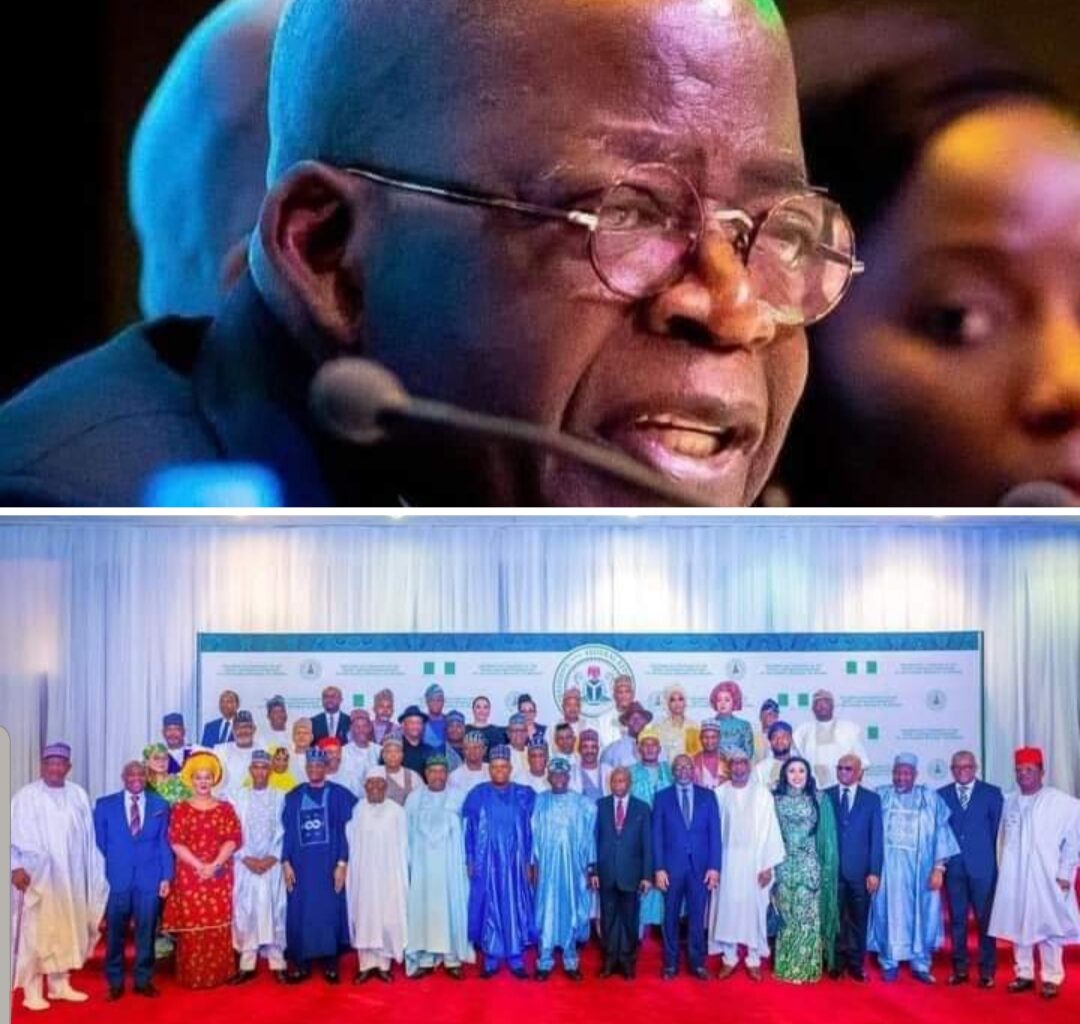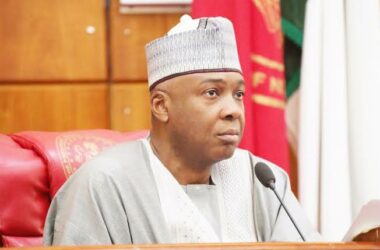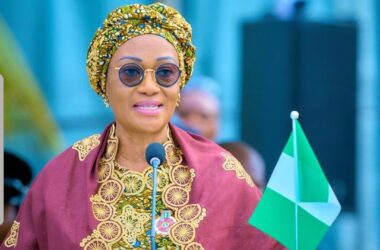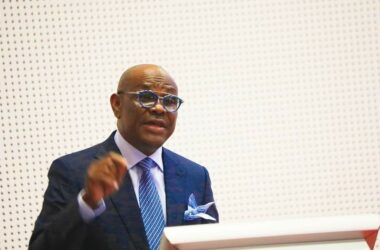Nigeria is uneasily poised at a critical crossroads in its journey as a nation. On the one hand is the very real prospect of collapsing under the weight of its multifarious socio-economic problems and even an apocalyptic disintegration as a polity. And on the other is the realization of her equally real potential and awesome promise to become a vibrant political economy of global importance. This double-edged outlook is enough to test the mettle of even the most capable and visionary of leaders and policymakers, and it requires a more than ordinary set of skills, competencies, attitudes and approaches, not just from the leader or sovereign himself, but from each member of his governing team and especially his cabinet – of both the executive and ‘kitchen’ varieties.
Uneasy, they say, lies the head that wears the crown, and the performance of the leader’s team – individually or collectively – is always seen as a reflection on the leader himself. In the same way as an underperforming student or class is sometimes seen (fairly or otherwise) as a reflection of the teacher’s ability, so also an underperforming subordinate (or entire team) is in many ways a reflection of the leader’s judgment.
Perhaps even more so. Because whereas a teacher who is employed in a school does not choose his or her students, a President or Governor does get to choose his cabinet. Of course, in the Nigerian context, we know that certain considerations and permutations go into the selection of Ministers and advisers, etc., which most of the time have little or nothing to do with merit, capacity and character. Considerations like party affiliation, ethnicity, state of origin, contributions to the party, even sponsorship by a godfather, often trump merit in influencing the leader’s choice of team members. But the leader – especially one that was elected with a healthy mandate – does have a big say. Which makes the performance of his team easier for him to influence – and their failure harder to swallow.
Perhaps this is what led President Bola Ahmed Tinubu to charge his newly-inaugurated Executive Council to help him succeed by performing to their utmost abilities and effort, as he – and only he – would be held responsible if the administration fails to deliver on the legitimate expectations of the Nigerian people. There is, afterall, a reason why this is called the Tinubu Administration – not Tinubu, Shettima and so-and-so Associates. The administration takes its name and essential character from that of its leader and no one else.
The President’s charge to his team couldn’t be more timely. Coming on the heels of the previous Buhari Administration, whose perceived underperformance was attributed in many quarters to the then-President’s tendency to hire subordinates based on primordial and sentimental attachments, rather than the appointees’ suitability for the task at hand.
If there is any time a President and his team cannot afford to slip up, it is now. Okay, scratch that: it was actually generations ago. But today, Nigeria can be said to be hanging precariously over a precipice – with a bruised economy whose woes are compounded by a divided polity and a populace bedeviled by insecurity and the ever-present threat of anarchy. At his inauguration on May 29, 2023, Tinubu promised to hit the ground running, and he has done so – for good or ill. He has taken bold decisions that many before him had either dreaded or even resisted. In spite of his controversial mandate, he is governing with an eye on securing legitimacy in the quarters where it is perceived to be lacking.
And he has made appointments that speak to his desire to make a difference in the fortunes of the country. When he said he would prioritise a government of “national competence” over “national unity” – he was greeted with nods of approval and credibility because, as Governor of Lagos State, he established a reputation for appointing people of diverse backgrounds into his government. “In selecting my government,” he said on Inauguration Day 2023, ” I shall not be weighed down by considerations extraneous to ability and performance. The day for political gamesmanship is long gone.”
Along with security, the economy is, of course, the key concern for Nigerians and, therefore, for the Tinubu Administration. In view of this, as the days go by, most stakeholders and observers (both local and international) will zero their focus on three Ministers in particular, who have the herculean task of formulating measures to strengthen the Nigerian economy – by stabilizing the naira, restoring investor confidence, aligning fiscal and monetary policies, speeding up budget implementation, and empowering the informal economy.
In an economy which, though it is the largest in Africa, is also the global epicenter of extreme poverty, the weight of expectations will lay most heavily on Mr. Wale Edun, the Minister of Finance, whose job functions have now been expanded to include overseeing the entire economy. The searchlight of expectations will also beam on Dr. (Mrs.) Doris Anite, the new Minister for Trade and Investment. The third leg on the tripod is Alhaji Atiku Bagudu, the immediate past two-term Governor of Kebbi State, who takes over at the Ministry of Budget and National Planning.
The announcement of Mr. Edun’s portfolio, after his nomination was corfirmed by the National Assembly, was greeted with excitement among critical stakeholders, and even the market responded positively on the day – and for good reason. He carries an undoubtedly formidable resume. Trained in economics in the UK, Edun started off at the defunct Chase Merchant Bank, before becoming an investment officer at the development finance arm of the World Bank, the International Finance Corporation, where he gained expertise in macro-economic and sector policies. He founded the credit rating agency GCR Ratings, and has also served as chair of the investment Bank, Chapel Hill Denham. He was an Executive Director of Lagos Merchant Bank, Investment Banking & Trust Company Limited (which metamorphosed into today’s Stanbic IBTC Bank). It will be recalled that, as a Commissioner in Lagos State, Edun helped wean that state off its dependency on allocations from the federal government by developing strategies that enlarged its monthly Internally Generated Revenue from an average of N1.2 billion to around N7 billion between 1999 and 2007. Popular with foreign investors during his time in Lagos, Edun is a crusader for the liberal market economy, but he has the unenviable task of overseeing an economy in the middle of one of its toughest fiscal crises, already N46.3 trillion ($60.4 billion) deep in debt with more than 96% of its revenues for last year alone devoured by debt servicing.
A trained surgeon-turned-economist, Dr. Anite boasts of vast experience in treasury and fixed-income trading during her time at Zenith Bank, one of Nigeria’s largest financial institutions. She was part of the presidential policy advisory panel set up by President Tinubu, which in its report in May recommended some of the recent foreign exchange reforms that the President has since implemented.
Former Governor Bagudu is the holder of undergraduate and Master’s degrees in Economics.
Rebuilding investors’ frail confidence in the Nigerian economy at this time will be top-of-mind for the pair of Mr. Edun and Mrs. Anite, considering that their respective ministries are at the intersection of convincing foreigners to plough their hard-earned cash into the economy. That task has become tremendously challenging lately in light of a plethora of systemic constraints, which is making Nigeria an increasingly problematic destination for foreign capital. First of all, there’s a logjam of unmet dollar demand dating back to 2020 (during the pandemic), which is fuelling a crisis of confidence for potential investors – in that they may not be able to redeem their investments at will if they look the way of Nigeria. Secondly, earnings from oil, which contributes about $9 of every $10 that comes into the country, have hit an all-time low on account of adverse factors like oil theft and low production. And thirdly, the naira faces vulnerabilities and domestic pressures from the need to regularly weaken it, which makes the cost of importation unbearably high for manufacturers.
As Minister of Finance and Coordinating Minister of the Economy, Edun has a duty to do something substantial about the country’s ease-of-doing-business profile in a bid to restore the country as a key investment hub in Africa. This he must do, in particular, by fashioning strategies that will sharply remove several barriers of entry for foreign investors. Issues like multiple taxation, port congestion and regulatory bottlenecks associated with registering businesses are exlected to be a priority.
Another issue he might want to look at is a review of the Nigerian Exchange’s free float rule to raise the proportion of shares that could be held in quoted companies to those held by directors and other company insiders. Such a measure could help increase foreign participation in Nigerian stocks. For an administration that is pursuing the epic ambition of growing the stock market to 25% of GDP within 18 months from 14.3% as of May 2023, this should find its proper place on Mr. Edun’s desk.
The drive to diversify the country’s economy from its current mono-product profile has been a mantra for successive administrations. The Buhari government, in particular, made quite a song and dance about it – even as the head of that government crowned himself the substantive Minister of Petroleum Resources, rather than, say, Agriculture or Solid Minerals – but made little headway. This one-sided economic profile has made the country and its over 200 million people extremely susceptible to all manber of headwinds from the volatile international oil market – without any buffers whatsoever from other income sources that are capable of varying revenues from exports.
Considering the fact that resource-rich Nigeria has left the bulk of its mineral wealth uncommercialised for so many years (although all its 36 states, without exception) have mineral deposits in vast quantities, including bitumen, gold, coal, barite, gemstone, lead and bauxite, etc, Nigeria’s resource ‘richness’ has turned out to be a resource curse. In view of that, Mr. Edun has a duty to drive legislation that will boost mineral production across the states, the most pressing being the urgency to take the exploitation of mineral resources OFF the exclusive list to the concurrent list, and thereby set the stage for the participation of sub-national governments in resource control.
Large-scale commercial agriculture targeting crops with export prospects is equally imperative for Nigeria’s economic overhaul, and the Tinubu government has already shown its commitment to this goal by its declaration of a state of emergency in food production. All that is left now is effective implementation aimed at actualizing the goals of the declaration. Apart from increasing production, there is also a need to add layers of value to internationally traded commodities like cocoa and cashew. And the urgency of Nigeria’s fiscal problems right now requires that value addition be taken more seriously than ever before, to make the economy competitive and expand GDP.
Under Dr. Anite’s watch, the Tinubu Administration must leverage on the promise of the African Continental Free Trade Area (AfCTA) in respect of inter-African trade. AfCTA already presents itself as a low-hanging fruit for the actualisation of the dream of reshaping Nigeria into an export-oriented economy and easing the country’s access to a regional market that is currently worth $3.4 trillion in combined GDP. Also paramount (beyond scaling up export size) is quality assurance of made-in-Nigeria goods. This is a major factor that will make the country’s output more competitive, particularly in sophisticated markets like South Africa and Egypt.
So, in the spirit of continental free trade, Mr Edun and Mrs. Anite will need to explore inter-ministerial collaborations, especially with other ministries such as the Ministry of Interior, in a bid to tackle barriers like multiple checks and extortions on the part of the Nigerian Customs Service for seamless movement of goods.
From current indications, Nigeria’s cost of governance is unfortunately set to strain its finances beyond present levels for the foreseeable future – even as unsustainable as the present levels already are. What with National Assembly members pushing for a pay rise and the prospect of more and more offices and positions being created, analysts have put the cost of running the civil service at around 30% of GDP.
Meanwhile, the 2012 Oronsaye Report (remember it?) estimated that the government could save N1.3 trillion a year by scrapping 38 agencies, merging 52 other agencies and reverting 14 agencies to departments of ministries.
And this was back in 2012!
Clearly, the pair of Mesrrs Bagudu and Edun will need to rigorously pursue those recommendations, because they are crucial not only to cutting costs but also to blocking all manner of leakages. Together, the two men must prioritise budget implementation and performance, again because they are crucial to achieving the government’s developmental plans. At present, Nigeria’s budget as a proportion of GDP is the weakest among its sub-Saharan African counterparts at only 7.9% – compared to, say, Angola, Ghana, and South Africa, which stand at 14%, 26% and 29% respectively.
All in all, then, President Tinubu’s appeal to his cabinet to bring their A-Game to the table (so the principal, on whose desk the buck literally stops, can ‘breathe’ in the estimation of the generality of Nigerians) is apt. Apart from the three Ministers listed above, all other Ministers and Special Advisers must be made keenly aware of the enormity of the challenges facing Nigeria, and act at all times with the required sense of urgency.
Our country may not be at the brink of collapse just yet, but she’s certainly at a crossroads, as stated at the beginning of this article, and the sooner those who have been given the opportunity to work with this President realize what they must do to steer the country away from this path of perdition she’s been traveling these past decades, the better for our lives, incomes and livelihoods – as well as for the peace of our communities, the harmony of our nation, and our rightful place in the world.
Not to mention history’s dispassionate judgment of the Tinubu Era in Nigeria – whether it was a Golden Age or a Dark one.






